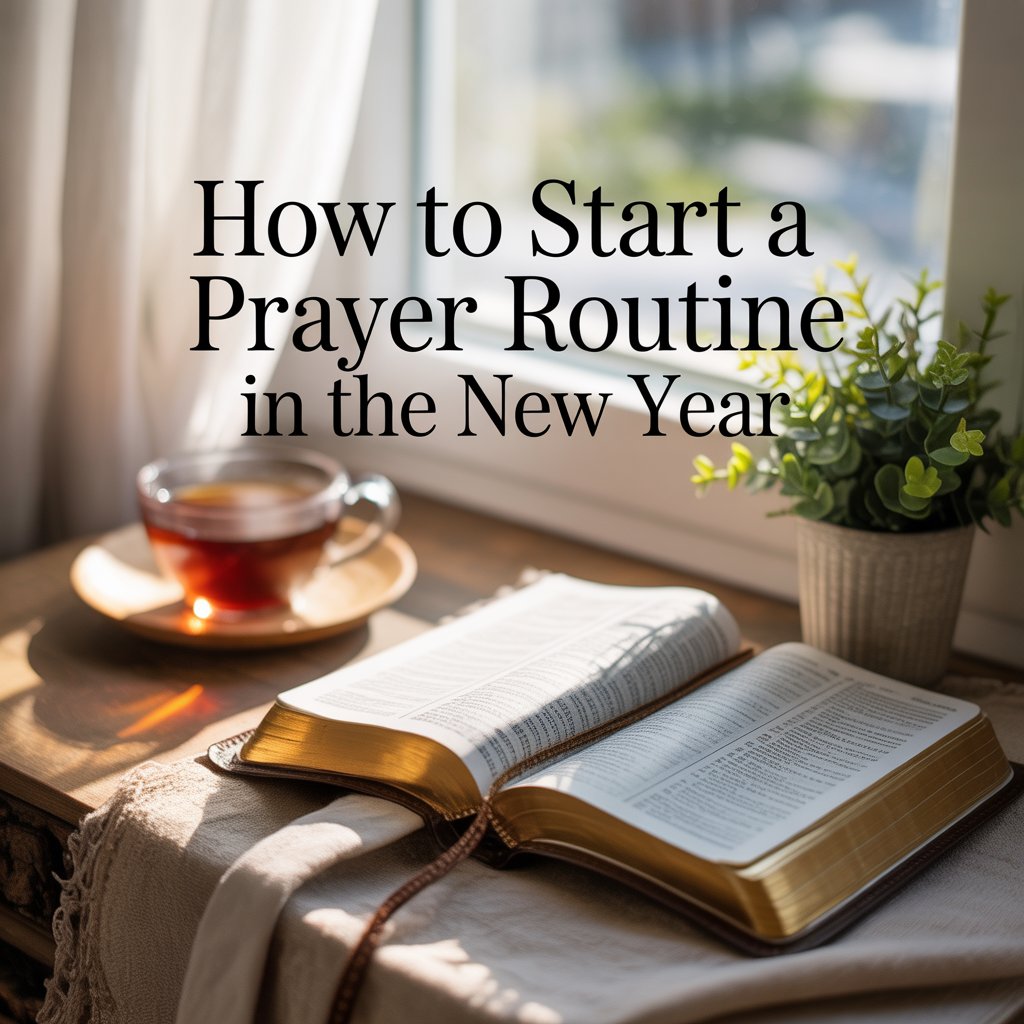The Role of Forgiveness in Motherhood

Motherhood is beautiful, but it is also one of the hardest and most humbling callings. It brings laughter and love, but it also reveals how much patience and forgiveness our hearts truly need. Every mom faces moments of disappointment — with herself, her children, or even her spouse. Those moments are where grace meets growth.
However, forgiveness in motherhood is not just about letting others off the hook. It is about freeing your heart from resentment, guilt, and pressure so you can love fully again. True forgiveness allows you to reflect God’s compassion in your home and to walk in peace even when things are not perfect.
The Bible reminds us in Ephesians 4:32, “Be kind and compassionate to one another, forgiving each other, just as in Christ God forgave you.” That verse is not only for our relationships with others but also for the way we treat ourselves.
In this post, we will explore what forgiveness really looks like in everyday mom life — forgiving yourself when you fall short, forgiving your children when they test your patience, forgiving your spouse when you feel unseen, and even forgiving those from your past who may have hurt you.
Forgiveness from a Biblical Perspective
Forgiveness is one of those words we hear often, but it can feel difficult to live out, especially when emotions are raw. From a biblical point of view, forgiveness is not about pretending something didn’t hurt or excusing what happened. It is a choice, a decision to let go of the hurt and hand it over to God.
When you forgive, you are not showing weakness. In fact, you are showing strength and trust in God’s justice and grace. Forgiveness means you are choosing peace over bitterness, healing over resentment, and freedom over the weight of anger. It is an act of obedience that allows your heart to breathe again.
The Bible reminds us in Colossians 3:13, “Forgive as the Lord forgave you.” That verse is a gentle but powerful reminder. Just as God extends mercy to us daily, we are called to do the same for others — and for ourselves. Forgiveness mirrors God’s heart. When we let go, we make room for His peace to fill the space where pain once lived.
In motherhood, forgiveness often shows up in everyday moments, when your child says something hurtful, when your spouse forgets to help, or when you lose your temper and feel guilty afterward. Each situation becomes an opportunity to reflect God’s grace instead of carrying emotional burdens.
Forgiveness also changes the atmosphere in your home. It softens your words, restores relationships, and teaches your children what grace looks like in real life. When they see you forgive easily, they learn that love and mercy go hand in hand.
Take a moment to reflect: What situation in your life is God inviting you to release today? It could be something small, like frustration over a tough morning, or something deeper, like lingering hurt from the past. Whatever it is, you don’t have to carry it alone. Bring it before God, ask Him for help, and let forgiveness open the door to peace.
Step 1: Forgiving Yourself
One of the hardest parts of motherhood is learning to forgive yourself. Many moms carry silent guilt — guilt over losing patience, missing a school event, snapping in frustration, or simply feeling like they are not doing enough. These feelings can slowly weigh down your heart and steal your joy.
But here’s the truth: God never asked you to be a perfect mom. He called you to be a loving, growing one. Every mistake, every tear, and every “I wish I had done better” moment can become an opportunity for grace. God’s love covers all your imperfections and offers you a fresh start every single day.
The Bible says in Romans 8:1, “There is now no condemnation for those who are in Christ Jesus.” That means you don’t have to live under the heavy cloud of guilt or shame. When you bring your regrets to God, He forgives you completely and helps you walk forward in peace.
Forgiving yourself also helps you show more kindness to your family. When you accept grace, you naturally extend it. You stop expecting perfection from yourself and others, and your home becomes a place of gentleness and growth instead of pressure and guilt.
Take a quiet moment to write your regrets or feelings of guilt in your Journal. As you write, tell God what’s on your heart. Ask Him to replace your guilt with peace and to remind you that you are still becoming the mother He designed you to be.
If you know another mom who often feels overwhelmed by guilt or self-doubt, consider gifting her a Glory Prayer Box. It can be a simple but meaningful way to help her release her burdens in prayer and remember that grace is always within reach.
Step 2: Forgiving Your Children
Every mother knows that children can test patience in ways you never expected. From spilled milk and messy rooms to talking back or forgetting instructions, kids give us many opportunities to practice grace. It’s part of the parenting journey. But forgiveness is more than just letting things slide, it’s a way of teaching your children what real love looks like.
When you choose forgiveness, you’re showing your children that God’s love doesn’t disappear when they make mistakes. You’re modeling compassion, patience, and emotional maturity. It helps them understand that while actions have consequences, love and connection remain unshaken.
The Bible reminds us in Psalm 103:8, “The Lord is compassionate and gracious, slow to anger, abounding in love.” As parents, we’re called to reflect that same heart toward our children. It doesn’t mean ignoring wrong behavior; it means correcting with kindness, not resentment.
Here are a few simple ways to practice forgiveness with your children:
-
Pause before reacting. When emotions rise, take a deep breath and pray silently before you respond.
-
Talk through mistakes calmly. Help your child understand what went wrong and how to make it right.
-
Reassure them of your love. Remind your children that even when you’re disappointed, your love remains constant.
These small choices build trust and create a safe emotional space where your children can grow without fear of rejection.
Consider keeping a few Prayer Cards inside your Glory Prayer Box for moments when you feel frustrated. When something tests your patience, write it down and surrender it to God. Thank Him for giving you wisdom and strength to parent with grace instead of anger.
Step 3: Forgiving Your Spouse or Co-Parent
Parenting together can be one of the greatest blessings and, at times, one of the hardest tests of patience. Whether you’re married or co-parenting, shared responsibilities, exhaustion, and different parenting styles can create tension. Words are said in frustration, expectations go unmet, and hurt feelings can quietly build up.
Forgiveness in these moments is what keeps love and teamwork alive. It’s not about pretending everything is fine, but about choosing peace over bitterness. When you forgive your spouse or co-parent, you create an environment of unity that blesses your entire family. Children feel more secure when they see forgiveness modeled between their parents.
The Bible reminds us in 1 Corinthians 13:5, “Love keeps no record of wrongs.” True love doesn’t hold on to past mistakes; it chooses grace again and again. That doesn’t mean ignoring problems, it means addressing them with humility and compassion.
Here are a few ways to practice forgiveness with your spouse or co-parent:
-
Pray before difficult conversations. Ask God to calm your heart and guide your words before you speak.
-
Choose empathy over resentment. Try to see things from their perspective, even when it’s hard.
-
Remember that forgiveness strengthens relationships. Each time you forgive, you’re laying another brick in the foundation of trust and peace.
Forgiveness creates space for growth, healing, and renewed connection. It reminds both of you that you’re on the same team, working together for your family’s good.
Step 4: Teaching Your Children the Power of Forgiveness
Forgiveness is one of the most important heart lessons you can teach your children. It is not just about saying “sorry” or “it’s okay.” True forgiveness helps them understand compassion, humility, and the value of letting go. Children often learn this best by watching how you handle mistakes and conflicts at home. When they see you forgive with patience and kindness, they learn that forgiveness is part of love.
Teaching forgiveness takes time and repetition, but every moment matters. When children understand that forgiveness is not weakness but strength, they grow to be more empathetic and emotionally secure. It shapes their character and builds a peaceful, loving home environment.
Here are some practical ways to teach forgiveness to your children:
-
Read Bible stories about forgiveness. Share simple stories like Joseph forgiving his brothers or the parable of the prodigal son. Talk about how these examples show God’s heart.
-
Encourage them to say, “I forgive you.” Help them use these words sincerely instead of ignoring or holding grudges.
-
Celebrate acts of kindness after conflict. Notice and praise moments when they choose love over anger, even in small ways.
The Bible reminds us in Matthew 6:14, “If you forgive others, your heavenly Father will also forgive you.” This verse can become a memory verse for your children to help them understand that forgiveness connects them to God’s heart.
As a family, use your Glory Prayer Box Journal to record moments when forgiveness was practiced. Encourage your children to write or draw how they felt when they forgave someone or when someone forgave them. Over time, this becomes a beautiful record of growth and grace.
Step 5: Letting Go of Past Hurts
Some wounds from the past stay hidden in the heart, quietly shaping how you respond to life, your children, or even yourself. As a mom, carrying old pain can make it harder to parent with peace and joy. Letting go of past hurts is not about pretending they never happened. It is about releasing them to God so they no longer have power over your present.
Forgiveness for past pain is deeply personal. It might involve people who hurt you long ago — a parent, a friend, or someone who let you down when you needed support. But the beauty of God’s love is that He never asks you to heal alone. When you let go, He replaces your heaviness with peace and gives you new strength to love freely again.
The Bible reminds us in Isaiah 43:18–19, “Forget the former things; do not dwell on the past. See, I am doing a new thing.” God’s promise here is a gentle reminder that your future can bloom again when you stop watering old pain.
Here are some simple ways to begin releasing what weighs you down:
-
Pray daily for strength: Ask God to help you surrender the memory, emotion, or person that still hurts. Healing often happens little by little.
-
Write a letter of release: Express how you feel, acknowledge the pain, and end with words of forgiveness. You don’t have to send it, it is for your heart’s healing.
-
Replace bitterness with gratitude: Instead of replaying the pain, thank God for what you learned and how He carried you through it.
The Peace That Comes from a Forgiving Heart
When forgiveness becomes a regular part of your life, something beautiful happens — peace begins to settle in. It softens your words, calms your reactions, and fills your home with a gentler kind of love. Forgiveness doesn’t mean the pain never existed. It means you’ve chosen not to let it control you or your family anymore.
Motherhood is full of moments that can test patience and grace, but when forgiveness becomes your response instead of anger or resentment, your home starts to reflect God’s peace. That peace brings clarity, warmth, and a sense of safety that everyone can feel — including your children.
The Bible describes this kind of peace in Philippians 4:7, “The peace of God, which transcends all understanding, will guard your hearts and minds in Christ Jesus.” This verse reminds us that true peace doesn’t come from perfect circumstances. It comes from trusting God enough to let go of the hurt and allow His love to guide your heart.
Forgiveness and peace work hand in hand. The more you forgive, the lighter your spirit becomes. The more you release, the more space there is for joy, laughter, and harmony. Even when life feels chaotic, forgiveness keeps your heart centered and your home grounded in grace.
Conclusion
Forgiveness in motherhood is not something that happens once; it’s a daily walk of grace. Some days you will find it easy to forgive, and other days it may feel like work. But each time you choose to release guilt, frustration, or resentment, you open your heart to receive more of God’s peace and love.
God doesn’t expect perfection. He invites you to come as you are — tired, overwhelmed, and sometimes disappointed — and to rest in His mercy. When you forgive yourself for the moments you fall short, when you extend grace to your children, and when you choose peace over bitterness, you reflect the very heart of Christ.
Remember the promise of renewal in Lamentations 3:22–23: “Because of the Lord’s great love we are not consumed, for His compassions never fail. They are new every morning.” Each new day is another chance to begin again, to live lighter, and to love deeper.





